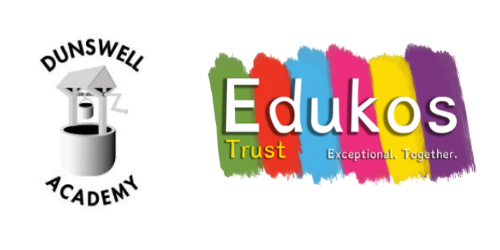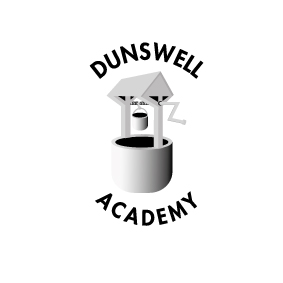Our Curriculum
Here you will find out about our approach to the curriculum.
If you require further information about our curriculum. Please contact your child’s class teacher.
At Dunswell Academy, it is our aim to ensure that all children will be inspired to reach their full potential – academically, physically and emotionally. Every opportunity will be given for them to become successful learners, confident individuals and responsible citizens.
All children will be taught to develop their independent learning and personal skills by ensuring they are given time to explore ideas and topics through practical and hands-on experiences. Taking into account the requirements of the Primary National Curriculum, teachers will plan exciting and challenging thematic work which is regularly adapted and amended to ensure that the focus is relevant and purposeful to all children.
Teaching approaches, which are developed as a team, will be consistent and ensure high standards throughout the whole school. Three clear, overarching topics a year, will ensure that learning is broad and balanced and enable deep learning to take place. Activities planned, will be creative and imaginative, in order that children are fully engaged in their learning. In turn, this will ensure that children have a full understanding of what they are learning and how to achieve success, and in doing so take increasing responsibility for their own progress. Adults will support children in becoming thinkers, questioners and reflective learners.
Developing the whole child is essential to their well-being and success. These are developed through respect, value, support and praise to ensure their growth. Children will be developed as a part of the community allowing them to develop happy and healthy lives. Opportunities ensure that children develop an understanding of people, cultures and heritages. The environment created for the children will be developed to inspire, raise questions and create a sense of wonder.
At Dunswell Academy, everyone will have a positive attitude and high expectations for others as well as themselves and children will be clear about what is required of them to ensure that they are always working to the best of their abilities.
The teaching of phonics is undertaken following Little Wandle Letters and Sounds Revised across the whole school. This is a Systematic Synthetic Program for teaching phonics which has been assessed and validated by the Department for Education. To support children in using the phonics in their reading, children begin us the reading scheme books which match sounds to their classroom learning. As children become competent in their phonic knowledge, they are able to apply this understanding to their books. Once they have completed the phonics programme, the children use the Bug Club books to continue their reading journey.
Each individual subject of the National Curriculum is taught through the programmes of study (https://www.gov.uk/government/publications/national-curriculum-in-england-primary-curriculum). Religious Education is delivered following the statutory East Riding ‘Agreed Syllabus for Religious Education’. This can be found on the website (http://www.eriding.net/all-ages/religious-education/). The staff of Dunswell Academy have ensured that they have created a bespoke scheme of work for the children in their classes. Each year group’s curriculum overview for this academic year can be found on their class pages.
At Dunswell Academy, our vision statement ‘Value, Nurture and Fulfilment through Support, Harmony and Praise’, is an integral part of daily life. The everyday things that we do, such as Praise and Award assemblies, lunchtimes, playtimes, recognising and praising individual achievements, individual responsibilities and a wide range of cross-curricular and curriculum enriching visits and visitors mean that the children at our school are encouraged to become caring, understanding and knowledgeable citizens. Consequently, they are well equipped for the next stage of their education and to live life in the 21st century.
Should require any further information about the curriculum, please see your child’s class teacher in the first instance.
Within our Primary School, assessment is a continuous process that is integral to teaching and learning. Assessment is seen as the process of seeking and interpreting evidence for use by learners and their teachers to decide where learners are in their learning, where they need to go and how best to get there.
Assessments within our school have a number of aims. These include:-
- Supporting teachers in providing rich-open-ended learning activities that are well matched to the pupils’ starting points and that allow pupils to extend their skills and develop their thinking.
- Ensuring that pupils make progress in lessons, against specific learning objectives and success criteria, enabled by quality, constructive feedback and marking, collaborative peer discussion and self-assessment.
- Helping children understand what they need to do next to improve their work.
- Ensuring those leading learning in a classroom are able to evaluate and plan further teaching.
- Providing regular information for parents that enables them to support their child’s learning
- Providing school leaders and governors with information that allows them to make judgments about the effectiveness of the school.
Across the Trust schools we are able to:-
- Moderate assessment judgments between schools
- Ensure consistent information is passed to High Schools upon transition to secondary education.
Formative assessments
Regular, formative assessments are vital in order to monitor learning, inform teaching and help children to understand the next steps in their learning. Within our school, regular formative assessments are recorded using the online assessment tool, Scholarpack for all pupils and Foundation subjects. The Little Wandle assessment tool is used to closely monitor children’s phonics progress. Pupils are assessed against a range or age-related objectives for all subjects. These objectives are directly linked to the heightened expectations of the National Curriculum 2014.
The ongoing use of this system allows teachers to build an accurate picture of a child’s performance and address any gaps in their learning. Though most pupils will be assessed against their year group’s programme of study, it is recognised that some children perform at a level either significantly higher or lower than their age-related expectations. In these circumstances, schools may assess a pupil against a more appropriate age-related curriculum.
Tracking Pupil Progress
In order to track pupil and cohort progress, pupils are periodically awarded a ‘best-fit level’ which relates to their age-related curriculum. This is done using a six-point scale. In order to show which year group curriculum a child is working within, the year group is included with the coding. A child who is therefore ’Developing +’ within a Year 4 curriculum would be described as working at D4+.
To support schools in forming a ‘best fit’ level, data is periodically taken from Scholarpack and the percentage of objectives met used to determine a provisional level. This can then be refined using the teachers’ knowledge of the children.
Judging progress
Progress is judged from a child’s starting point either at the beginning of the year or from the end of EYFS or Key Stage One results. A pupil can be said to be making good progress if each year if they make at least six points progress per year. A cohort can be said to be making good progress if the percentage that are meeting or exceeding the expected standard for their age group increases each year.
For some pupils with specific learning needs and for whom the age-related curriculum is inappropriate, good progress will be determined by an analysis of their progress within the programme of study within which they are working.


